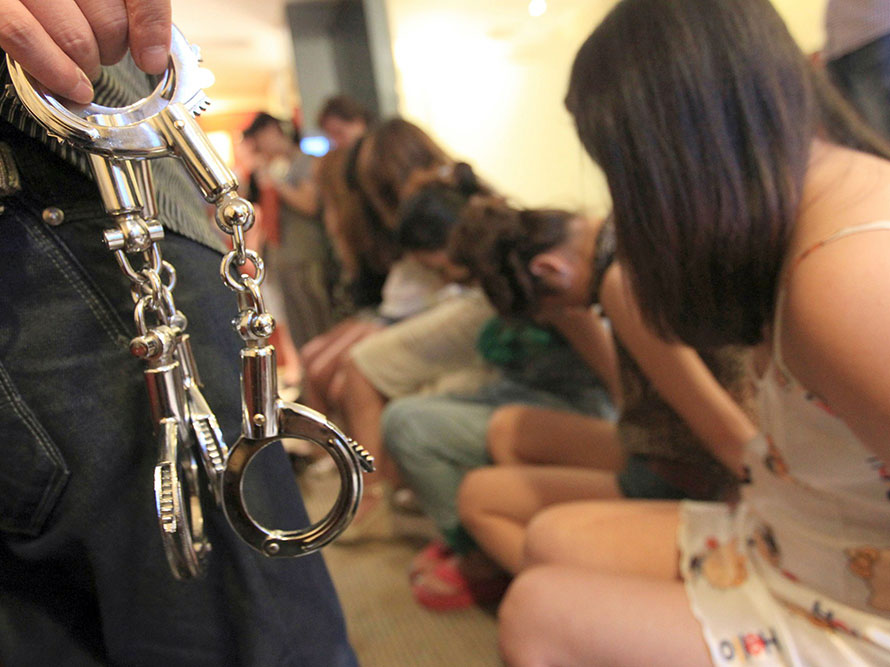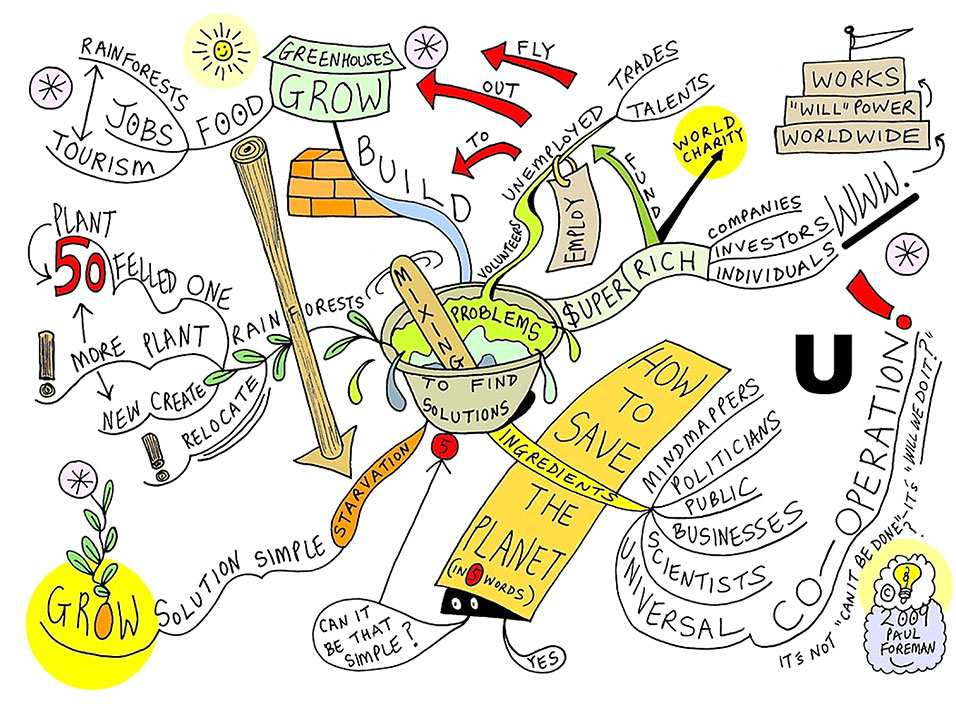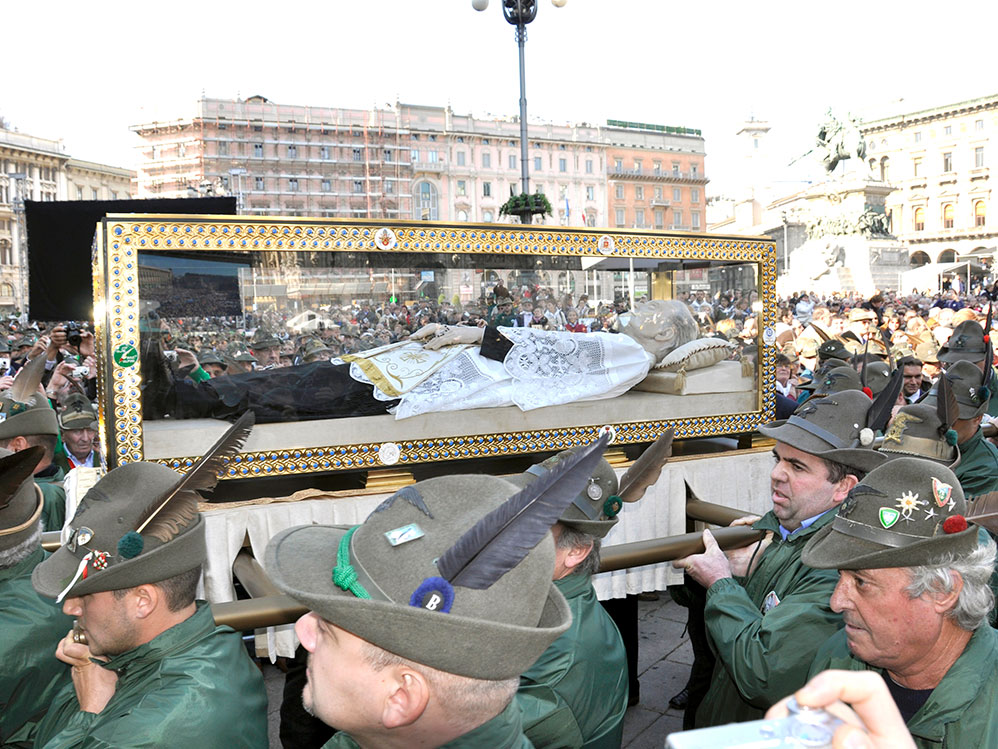When a divine intimation urges a person to be fearless, he or she must be afraid. For, to be sure, the Divine is summoning that person to a ‘fearful’ mission. Only those far advanced in faith would readily say “yes,” as the Blessed Virgin Mary did.
When Peter was told by Jesus to “fear not” (Lk 5:10), little did Peter realize how far this call would take him. Little did Peter know that he was placing himself after a Prophet who had decided to lead him to the “last limits of human existence” and who, in the words of Pope Francis, would be rejected, put to trial and even led to the cross! The wonders that the Master had worked and the hundredfold blessings He had promised certainly did not point to such an impending doom!
Peter’s weak character did not help either. He seemed the most unlikely person to lead the disciples, despite the Master’s patronage. He lingered behind Jesus who was determined to enter Jerusalem despite impending death (Mk 10:32) cowered before a strong wind (Mt 14:29), and cringed as a servant girl identified him as a follower of the arrested Nazorean (Mk 14:67). Most of all, Peter never dreamt that he would die a martyr’s death (Jn 21:18-19) – all for the sake of his Master. In human terms, he was making a disastrous choice.
PETER’S TRUSTING CONFIDENCE IN JESUS
But for all Peter’s faults, his unfailing trust in the Master eventually redeemed him. To begin with, Simon Peter was fascinated with this upstart Rabbi from Nazareth. Unlike many, he did not reject the possibility that something good could come from Nazareth (Jn 1:46). He did not ridicule the idea that the Messiah could come from Galilee (Jn 7:41). He also delighted in the freedom and unpretentious manner with which the Master climbed his boat to address the crowds a few meters from the shore. Peter’s enthusiasm grew as the excitement mounted among people over the stirring message that the Galilean Prophet preached.
However, at one point, he was taken aback when the Master suggested that he push a little further and cast the net into the deep. He and his companions had been fishing all night and had caught nothing. Peter’s good sense told him it was not a worthwhile proposal. After all, the suggestion came from a carpenter’s son from inland Nazareth who was too little acquainted with deep waters and had no fishing skills. Despite that, however, he could not resist the wave of trusting confidence that swept through him at that moment. He didn’t know why, but he surrendered. “Master,” he said, “we worked all night long and caught nothing. But if you say so, I will let down the nets” (Lk 5:5).
LEADERSHIP AS SERVICE
The big catch he made threw Peter overboard. He felt he did not deserve that success. Only another fisherman would be able to understand the flood of emotion that overcame him as he fell on his knees and said: “Depart from me, Lord! I am a sinner.” Jesus replied, “Don’t be afraid; from now on you will be catching men.” Peter was too overwhelmed to understand what the Master meant by those words. It was too much for him to realize at that stage that he would emerge as a leader in society, that he would soon exercise authority in the Church. Furthermore, it took a long time for him to understand that authority in Jesus’ mind did not mean domination… but service.
Like Peter, many who are called to “push a little further and cast the net into the deep” do not actually know what it entails. If anything, we are overjoyed at the fact of being chosen, without actually understanding the responsibility that goes with it. The notion of servant-leadership was so revolutionary that it is hard to say whether Jesus’ followers really understood the message down the centuries. That is why Pope Francis is making a supreme effort to take us back to the early intentions of the Master.
Christian leadership, the Pope says, is not reveling in self-importance but in responsibility for the wider world. It also means reaching out to the ends of the earth with Jesus’ love, offering help to those struggling in the face of poverty and injustice. This was the Pope’s message when he announced the appointment of new cardinals in January. He prefers to see a Church that is scrambling and under pressure in serving others than one that is in a rat race for positions, security and comfort from within. A Church that does not dare to reach out or fears risk-taking in service has no future.
FISH ARE CAUGHT, MEN ARE PERSUADED
Of course, the task is not as easy as it sounds. For one, there are evident differences between fish and men. Fish are caught using a net; men need to be persuaded to make them follow. In short, unlike fish, people cannot be objectified. Unfortunately, in today’s world, human beings are being treated like fish and made to serve the stronger man’s purposes: business owners pay their workers low wages, commercial enterprises sway consumers thru false promises, leaders of militant groups push frontliners even at the expense of their safety, and rabble-rousers agitate the illiterate masses to their detriment. This is not Christian leadership, much less “textbook” leadership. Our Christian duty is (1) to be helpful to people precisely in areas of their weaknesses, including self-indulgence, (2) to look upon them with tenderness and love, and (3) to open up a horizon of hope for all. The Gospel is for the diffident, the different and the difficult as well.
Pope Francis believes that if the Church we build is one of humanity, hospitality and unpretentiousness, there will be plenty of space for people of various characters and opinions. Even atheists, agnostics, radicals and non-conformists will not feel unwanted. We admit, they cannot be “caught,” pushed around, ordered, or forced to fall in line. But they may allow us to walk with them as the disciples of Emmaus allowed Jesus to join their company. We may enter into conversation with them and grow in our intimacy with them. The atmosphere for a brief prayer may arise at some point. It is at that moment that their eyes may be opened (cf Lk 24:31). They, in turn, may go out announcing the Good News, like the Emmaus duo did. Life, after all, is a pilgrimage. Any progress can only be gradual.
While we strive to reach out to others, we should not forget to search within. We can begin by getting over the spirit of individualism, selfishness and various forms of rivalries and quarrels among ourselves, prejudices against others, and the eagerness for self-advertisement. If only we would allow our eyes to be opened to see the true state of things within and around us, we would, like Peter, go out and weep bitterly (Mt 22:62).
OPEN UP A HORIZON OF HOPE FOR THE MOST HELPLESS
Every Christian is a missionary, according to Pope Francis. This means that we are all fishers of men in every circumstance, even the most difficult ones. Persecutions should not break our spirit, they can only stimulate it. After all, the Church itself was born out of persecution. Christianity grew in China under heavy pressure, so, too, under other totalitarian regimes. Believers fought hard to preserve their faith and grew in number. Trials, therefore, can only serve to stir the lethargic.
Our times are also proving to be a new age for martyrs. Even signs of danger can be a motivating cause to spread the Gospel in this era of New Evangelization. However, there is nothing as motivating as our genuine concern for the whole of humanity. We join hands with all those who believe in the betterment of the human family in a sense of common responsibility for the world and the whole of creation.
TO THE LAST OUTSKIRTS OF HUMAN EXISTENCE
However, the most motivating aspect of this mission is attention to the less fortunate, the weak and the suffering, those who yearn for justice, reconciliation and peace. Human pain itself is the best motivator. Matthew’s “hungry, thirsty, stranger, naked, sick, prisoner” (Mt 25:35-37) are easy to see in today’s slum children, street boys, unwed mothers, victims of violence, unemployed youth, exploited migrants, workers living in slave-like conditions, misguided young men under arms, and others, who need our mercy.
We need to enter into their world, understand their anxieties, use a language they understand, merge our dreams with theirs, and envision a future for them and along with them. We must open up a horizon of hope for people who are suffering from horrendous nightmares in their families, workplaces, schools, both in our neighborhoods and in the most inaccessible places on the planet. Only then can we say that we have heeded Jesus’ challenge to “push further into the deep.”
Lest we forget the Master’s challenge, Pope Francis offers us words of encouragement, the very words Jesus Himself used: “Do not be afraid; from now on, you will be fishers of human beings. Come along with me to the last outskirts of human existence.”


















